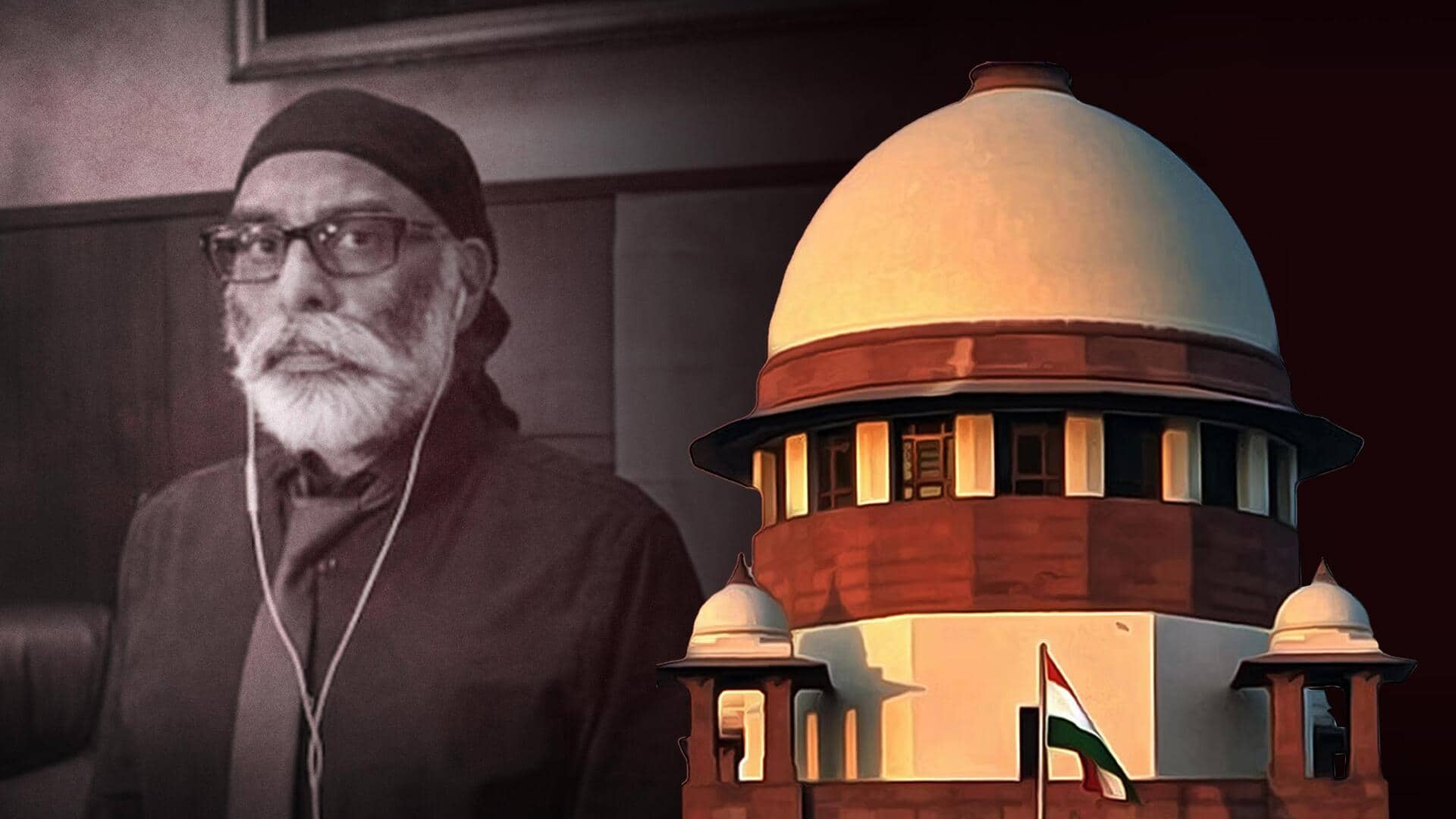
Pannun assassination plot: SC junks Nikhil Gupta's legal aid plea
What's the story
The Supreme Court (SC) on Thursday rejected a plea seeking legal aid and consular access for Indian national Nikhil Gupta. He has been charged by United States (US) prosecutors with plotting to assassinate Khalistani separatist Gurpatwant Singh Pannun in New York. A bench of Justices Dipankar Datta and Sanjiv Khanna reportedly said there is nothing the court can do as it is a sensitive matter, and the Indian government will decide how to proceed.
Context
Why does this story matter?
Gupta, a Delhi-based businessman, was apprehended in the Czech Republic last year in June and was charged by America in November with plotting to kill Sikhs for Justice (SFJ) supremo Pannun. The US Department of Justice (DoJ) claimed that an Indian government agent recruited Gupta to orchestrate the assassination of the victim, referring to Pannun, in the US. At the agent's direction, Gupta allegedly hired a hitman to assassinate the Khalistani leader, but the hitman was an undercover federal agent.
Details
Respect jurisdiction of foreign court: SC bench
The SC bench also told senior advocate CA Sundaram, representing the kin of Gupta, that the court should respect the sovereignty and jurisdiction of the foreign court and the law of that land. Therefore, it cannot go into the merits of the matter. "You are entitled for consular access under the Vienna convention, which you have already got," The New Indian Express quoted the bench as saying.
What Next?
Assassination plot charges made by US against Gupta
After the US charged Gupta in connection with the failed plot to assassinate a Khalistani leader, India called it a "matter of concern." Later, the Ministry of External Affairs (MEA) confirmed it had initiated a high-level investigation into the allegations leveled by the US. The incident came just two months after Canada said there were "credible" allegations linking Indian agents to the murder of another Khalistani leader, Hardeep Singh Nijjar, in June.
Know more
Details on SC petition by kin of Gupta
Earlier, Gupta's family claimed he was kept in isolation in prison and was being forced to eat meat and pork in violation of his religious beliefs. "The petitioner contends that the circumstances surrounding his arrest were marked by irregularities, with no formal arrest warrant presented," the petition said. Furthermore, it claimed that the apprehension was conducted by "self-claimed" American agents rather than local Czech authorities.